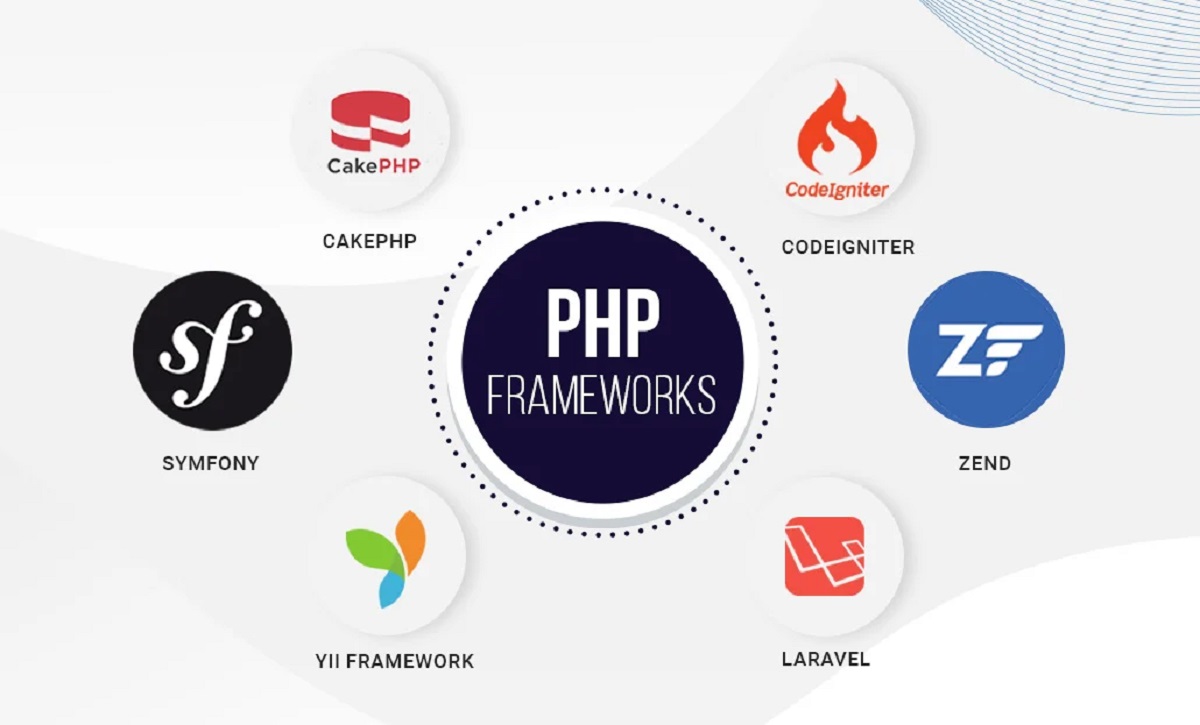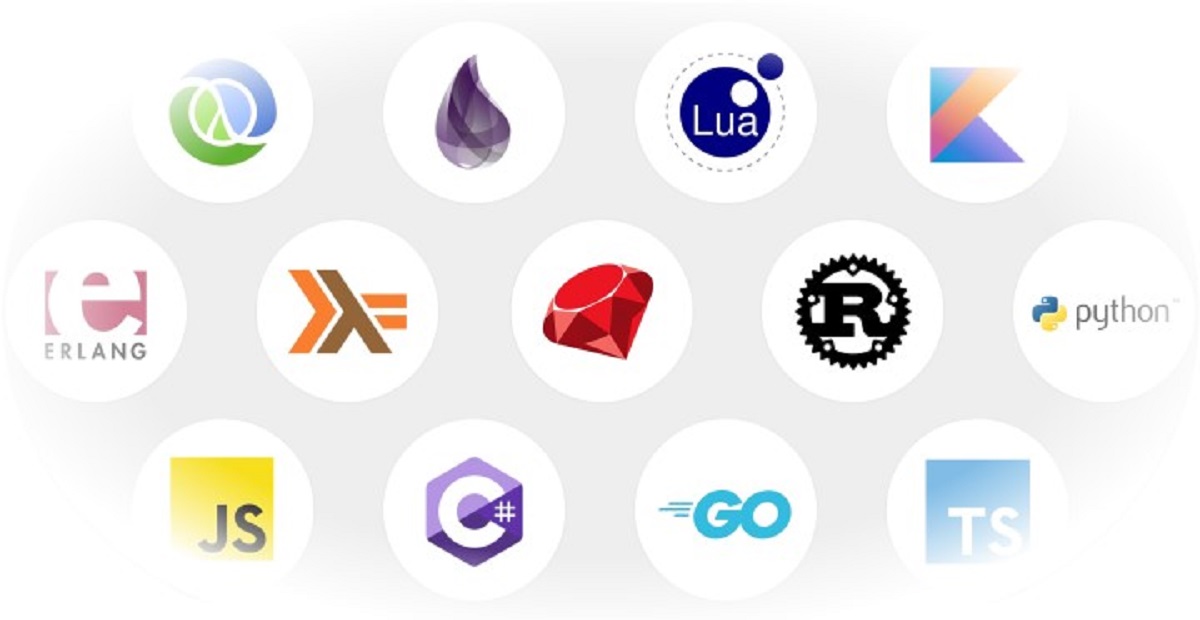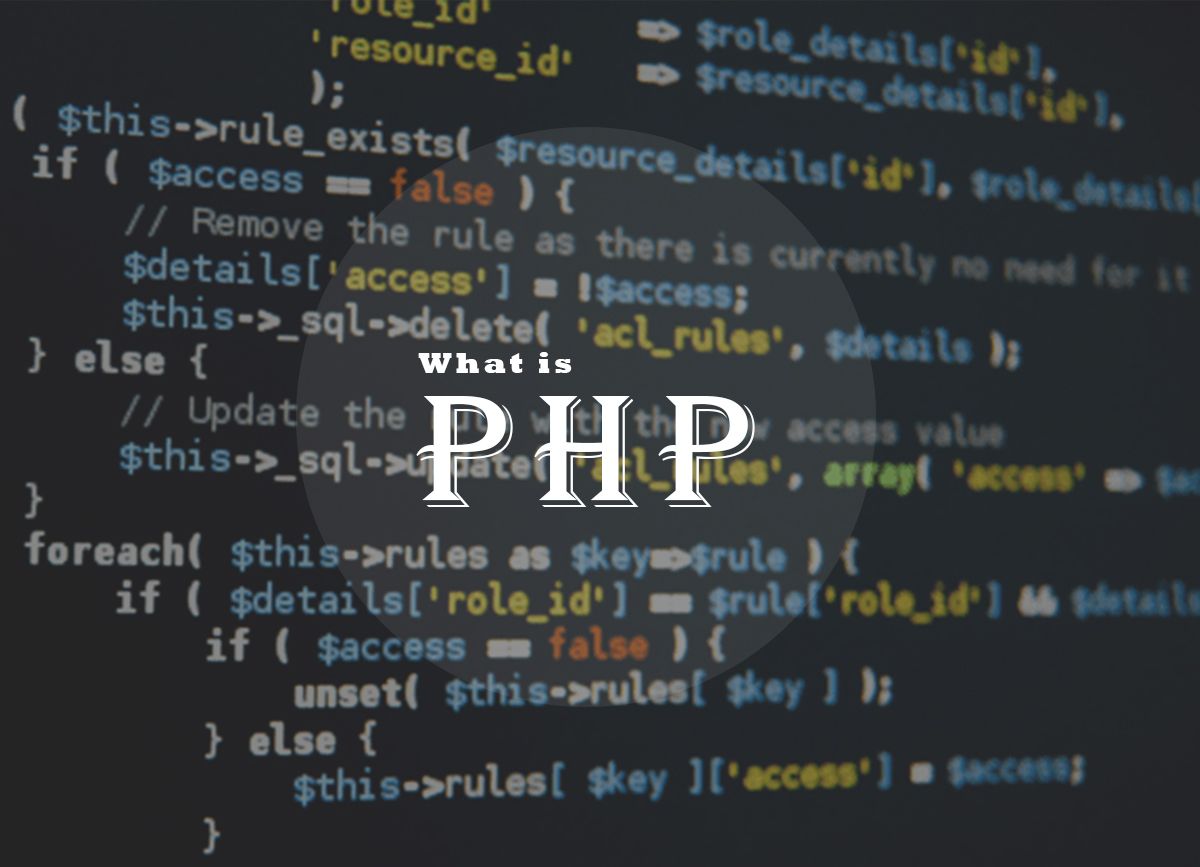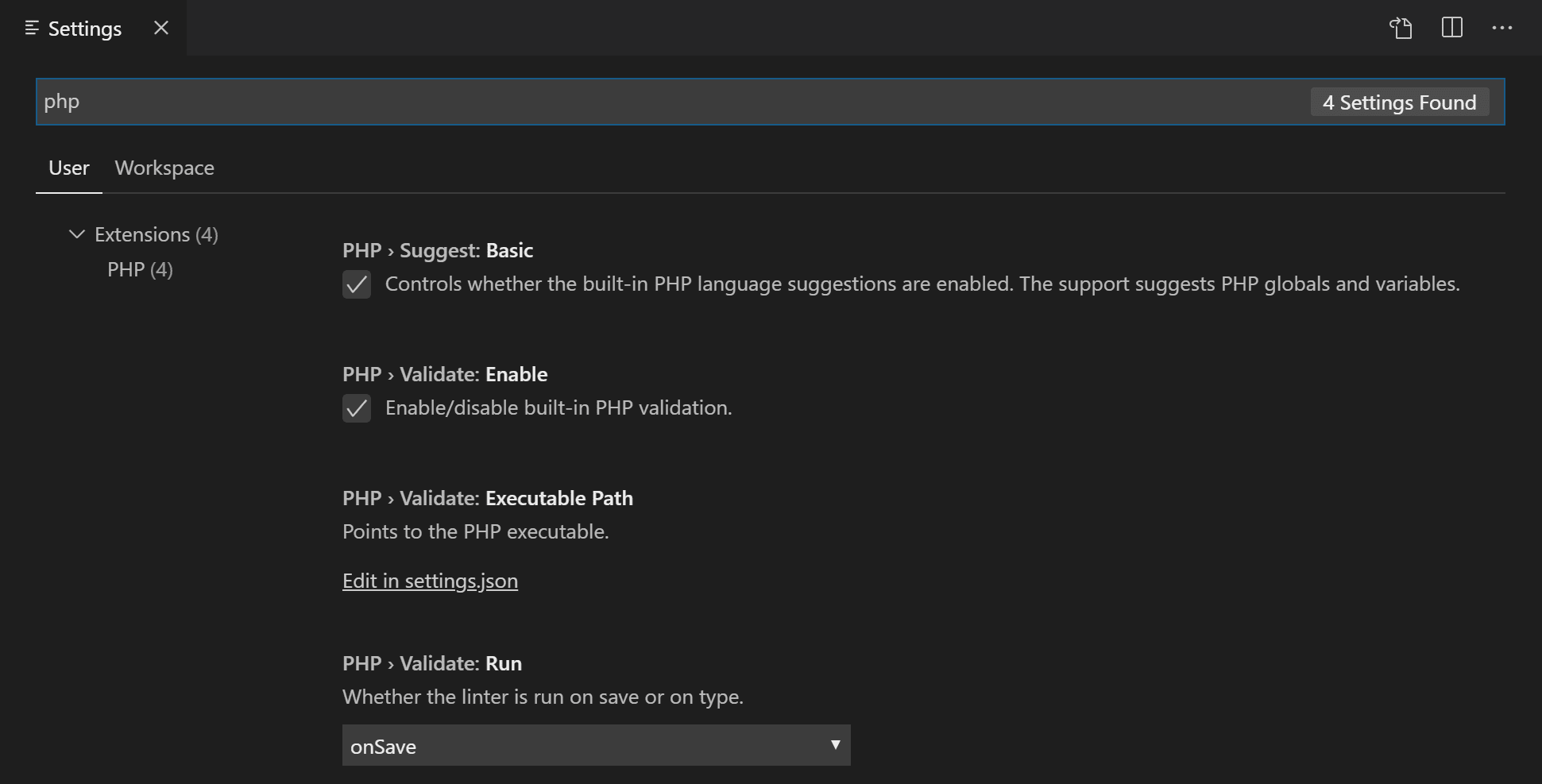Introduction
When it comes to web development, PHP is one of the most widely used programming languages. Its flexibility, ease of use, and extensive community support have made it a popular choice for building dynamic websites and applications. However, when developing complex projects, managing code can become a daunting task. This is where PHP frameworks come into play.
A PHP framework is a collection of pre-written code that provides a foundation for web developers. It offers a structured and organized approach to building web applications by providing a set of libraries, reusable components, and tools. These frameworks simplify the development process, allowing developers to focus on the specific requirements of their project without getting mired in repetitive tasks.
PHP frameworks offer numerous benefits, including improved code reusability, increased development speed, and enhanced security. By leveraging the functionality provided by these frameworks, developers can streamline their workflow and create more robust applications.
In this article, we will explore the advantages of using PHP frameworks, outline some of the popular frameworks available, and discuss their key features. Whether you are a seasoned developer or just starting out, understanding the benefits and functions of PHP frameworks is essential for maximizing your productivity and delivering high-quality web applications.
What is a PHP Framework?
A PHP framework is a collection of pre-written code that provides a foundation for developers to build web applications. It is designed to simplify the development process by offering a structured and organized approach to coding.
At its core, a PHP framework provides a set of libraries, reusable components, and tools that help developers solve common web development challenges. These challenges include handling input validation, managing databases, routing URLs, and implementing security measures. By using a PHP framework, developers can leverage pre-existing code and focus on writing application-specific logic instead of reinventing the wheel.
One of the key features of a PHP framework is its adherence to the MVC (Model-View-Controller) architectural pattern. The MVC pattern separates the application into three interconnected components: the model (data and logic), the view (user interface), and the controller (handles user input and manages the flow of data). This separation of concerns improves code maintainability and promotes code reusability.
Furthermore, PHP frameworks typically provide a standardized way of organizing files and directories. This helps in keeping the codebase structured and easily navigable, making it easier for developers to collaborate on projects or for new developers to join an existing project.
By using a PHP framework, developers can also take advantage of built-in security features. Frameworks often incorporate methods and functions to prevent common security vulnerabilities, such as SQL injection and cross-site scripting (XSS). This helps ensure that the application is secure by default, reducing the risk of security breaches.
Overall, a PHP framework provides a robust foundation for web development, allowing developers to build applications more efficiently and reliably. It promotes code organization, improves productivity, and enhances application security.
Why use a PHP Framework?
Using a PHP framework offers numerous advantages for web developers. Here are some reasons why you should consider using a PHP framework for your next web development project:
1. Faster Development: PHP frameworks provide a structured and organized approach to development. They offer pre-built modules, libraries, and tools that can speed up the development process. By leveraging these components, developers can focus on the specific requirements of their project instead of spending time on repetitive tasks.
2. Code Reusability: PHP frameworks encourage code reusability by providing a modular approach to development. Developers can create reusable components and libraries, which can be easily integrated into future projects. This not only saves time and effort but also improves code quality and maintainability.
3. Improved Productivity: With a PHP framework, developers can work more efficiently. The framework handles many common tasks, such as database operations, form validation, and routing, allowing developers to focus on implementing business logic. This streamlines the development process, increases productivity, and reduces the chances of errors.
4. Consistent Coding Standards: PHP frameworks often impose coding standards and guidelines, ensuring that the codebase follows best practices. This promotes code consistency, making it easier for developers to understand and maintain the code. It also facilitates code collaboration and simplifies the onboarding process for new team members.
5. Enhanced Security: PHP frameworks provide built-in security features and practices that help protect against common web vulnerabilities, such as SQL injection and cross-site scripting (XSS). These security measures are implemented at the framework level, reducing the risk of security breaches and providing a more secure foundation for your application.
6. Community Support: PHP frameworks have active and vibrant communities of developers who contribute to their development, provide support, and share resources. The community support ensures that you have access to a wealth of knowledge, documentation, tutorials, and plugins, making it easier to overcome challenges and learn from others’ experiences.
Overall, using a PHP framework can significantly benefit web developers by improving development speed, code reusability, productivity, code quality, security, and access to community resources. It provides a solid foundation to build robust and scalable web applications.
Benefits of using PHP Frameworks
PHP frameworks offer a wide range of benefits for web developers. Here are some of the key advantages of using PHP frameworks:
1. Faster Development: PHP frameworks provide a scaffolding that simplifies and speeds up the development process. With built-in libraries and tools, developers can focus on writing application-specific code instead of reinventing the wheel for common tasks. This results in faster development and quicker time-to-market for web applications.
2. Code Reusability: PHP frameworks promote code reusability by offering modular and component-based development. Developers can write reusable code that can be easily integrated into multiple projects, improving efficiency and reducing development time. This ensures consistent and maintainable code across different projects.
3. Scalability: PHP frameworks facilitate the development of scalable web applications. The modular architecture allows for the addition or removal of components as needed. This makes it easier to handle increased traffic or add new features without the need for extensive changes to the codebase. PHP frameworks also offer features like caching and database optimization, which further enhance scalability.
4. Security: PHP frameworks prioritize security by incorporating built-in features and adhering to secure coding practices. They provide protection against common vulnerabilities, such as SQL injection, cross-site scripting (XSS), and cross-site request forgery (CSRF). By leveraging these security features, developers can ensure that their applications are more robust and less prone to attacks.
5. Community Support: PHP frameworks have large and active communities of developers who contribute to their development, provide support, and share resources. This community support ensures access to a wealth of documentation, tutorials, and plugins. Developers can seek help, share their knowledge, and collaborate with other like-minded individuals. This rich ecosystem of support makes it easier to overcome challenges and stay updated with the latest trends in web development.
6. Improved Maintenance: PHP frameworks enforce coding standards and best practices, making the codebase more organized, readable, and maintainable. This facilitates easier collaboration between developers and simplifies maintenance, even as projects grow in complexity over time. The structure and conventions provided by PHP frameworks make it easier for new developers to understand and work on existing projects.
With these benefits in mind, it is clear that using PHP frameworks can greatly enhance the development process, improve code quality, and result in more efficient and secure web applications.
Popular PHP Frameworks
There are several highly regarded PHP frameworks available, each with its own strengths and features. Here are some of the most popular PHP frameworks used by web developers:
Laravel: Laravel is a powerful, elegant, and beginner-friendly PHP framework that has gained significant popularity in recent years. It offers features like a robust routing system, easy database management, a templating engine, and a migration system. Laravel follows the MVC architectural pattern and provides a clean, expressive syntax that simplifies development. It also has an active community and a vast ecosystem of packages and extensions.
Symfony: Symfony is a comprehensive PHP framework that focuses on flexibility and scalability. It provides a set of reusable components, making it suitable for projects of all sizes. Symfony follows a modular architecture and adheres to industry standards. It offers features like well-defined coding standards, a powerful dependency injection container, and a built-in testing framework. Symfony is highly extensible and can be integrated with other components or frameworks easily.
CodeIgniter: CodeIgniter is known for its simplicity, ease of use, and a small footprint. It is a lightweight PHP framework that offers excellent performance. CodeIgniter is beginner-friendly and requires minimal configuration. It provides a straightforward MVC implementation, clear documentation, and a rich set of libraries for common tasks. CodeIgniter allows developers to build web applications quickly without overwhelming them with unnecessary complexities.
CakePHP: CakePHP is a mature PHP framework that focuses on convention over configuration. It provides a rapid development environment and follows the MVC pattern. CakePHP emphasizes code reusability and offers features like built-in CRUD (Create, Read, Update, Delete) operations, scaffolding, and data sanitization. It also has a robust ORM (Object-Relational Mapping) layer that simplifies database management.
Zend Framework: Zend Framework is a highly customizable PHP framework that offers a flexible architecture. It provides a collection of professional-quality PHP packages that can be used independently or together. Zend Framework emphasizes performance, security, and extensibility. It incorporates best practices from the PHP community and follows a loosely coupled component structure. Zend Framework is particularly suitable for large-scale enterprise applications.
These are just a few examples of the many PHP frameworks available. When choosing a framework, consider factors such as project requirements, development expertise, and community support. Ultimately, selecting the right PHP framework will depend on the specific needs of your project and your development preferences.
Laravel
Laravel is a popular PHP framework known for its elegance, simplicity, and powerful features. It has gained widespread adoption among developers due to its robustness, ease of use, and extensive ecosystem. Here’s an overview of some key features and benefits of using Laravel:
1. Elegant Syntax: Laravel boasts a clean and expressive syntax that makes writing code a pleasure. It prioritizes developer friendliness and readability, allowing developers to write code that is both efficient and easy to understand.
2. MVC Architecture: Laravel follows the MVC (Model-View-Controller) architectural pattern, separating the application logic into three distinct components. This separation of concerns promotes organization, code reusability, and maintainability.
3. Robust Routing System: Laravel provides a powerful routing system that allows developers to define clean and organized URLs for different endpoints of their application. It supports various HTTP methods, route parameter binding, and middleware for handling and filtering requests.
4. Database Management: Laravel offers a fluent database query builder and an ORM (Object-Relational Mapping) called Eloquent. These powerful database tools make managing database operations, including querying, migration, and relationships, incredibly simple and intuitive.
5. Templating Engine: Laravel includes a powerful templating engine called Blade that simplifies the process of creating and rendering views. Blade templates offer clean and concise syntax, template inheritance, control structures, and various built-in directives for effortless view management.
6. Authentication and Authorization: Laravel provides a secure and seamless way to handle user authentication and authorization. It offers ready-to-use authentication scaffolding, password hashing, and role-based permissions, making it easier to implement robust user management functionalities.
7. Caching and Performance: Laravel comes with built-in support for various caching mechanisms, including file, database, and Redis caching. These caching options can dramatically improve the performance of an application by reducing database queries and optimizing code execution.
8. Extensive Ecosystem: Laravel has a thriving ecosystem with a vast collection of packages and extensions contributed by the community. These packages cover a wide range of functionalities, such as user authentication, payment gateways, social media integration, and more, making it easy to extend Laravel’s capabilities.
9. Active Community Support: Laravel has a large and active community of developers who actively contribute to its development and provide support through forums, documentation, and tutorials. The community ensures that Laravel stays up-to-date, secure, and offers constant improvements based on industry standards and best practices.
Laravel is a versatile PHP framework that can be used for building all types of web applications, from small personal projects to large-scale enterprise solutions. Its powerful features, developer-friendly syntax, and extensive ecosystem make it a top choice for web developers worldwide.
Symfony
Symfony is a highly flexible and scalable PHP framework that focuses on modularity and code reusability. It is widely used by developers for building robust and enterprise-level web applications. Let’s explore some of the key features and advantages of Symfony:
1. Flexible Architecture: Symfony follows a modular architecture that allows developers to pick and choose the specific components they need for their projects. This modular approach promotes code reusability and makes it easier to maintain and update applications over time.
2. Component-Based Development: Symfony provides a rich set of standalone and reusable components. These components cover a wide range of functionalities such as HTTP handling, routing, database management, form creation, security, and more. Developers can leverage these components individually or collectively to build custom solutions.
3. MVC and Request-Response Workflow: Symfony follows the MVC (Model-View-Controller) architectural pattern, separating the application into distinct layers. It handles the request-response workflow efficiently, making it easy to handle routing, request validation, and response generation. This structure promotes code organization and maintainability.
4. Powerful Dependency Injection Container: Symfony includes a powerful dependency injection container that manages object dependencies within the application. This allows developers to easily manage and switch out components, making the application more flexible and easier to test and maintain.
5. High-Level Testing Framework: Symfony provides a robust testing framework that allows developers to write unit tests, functional tests, and acceptance tests for their applications. It simplifies the process of testing and ensures that the application remains stable and bug-free throughout the development process.
6. Internationalization and Localization: Symfony offers built-in support for internationalization (i18n) and localization (l10n). It provides tools and features to easily translate and localize applications, making it easier to support multiple languages and cater to a global user base.
7. Security and Authentication: Symfony incorporates a comprehensive security system that helps developers implement robust authentication and authorization mechanisms. It provides features like user authentication, access control, encryption, and CSRF (Cross-Site Request Forgery) protection to ensure the security of the application.
8. Large and Active Community: Symfony enjoys a large and active community of developers who contribute to its development and provide support through forums, documentation, and online resources. The community ensures the framework’s growth, stability, and continuous improvement based on industry best practices.
Symfony’s versatility, modularity, and extensive set of components make it an excellent choice for building complex and scalable web applications. Its flexibility and powerful tooling empower developers to create robust, high-performance, and maintainable applications easily.
CodeIgniter
CodeIgniter is a lightweight and beginner-friendly PHP framework known for its simplicity, speed, and small footprint. It provides a straightforward and intuitive development environment, making it an excellent choice for building small to medium-sized web applications. Here are some key features and benefits of using CodeIgniter:
1. Lightweight and High Performance: CodeIgniter is designed to be lightweight, resulting in minimal system resource consumption. This makes it highly efficient and fast, which is particularly beneficial for applications that require quick response times and smooth performance.
2. Easy to Learn and Use: CodeIgniter has a shallow learning curve, making it accessible to developers of all skill levels, including beginners. It provides clear and comprehensive documentation, straightforward configuration, and a simple directory structure, allowing developers to start building applications quickly.
3. MVC Architecture: CodeIgniter follows the MVC (Model-View-Controller) architectural pattern, separating the application logic into three distinct components. This helps maintain code organization and improves code reusability and maintainability.
4. Powerful Database Management: CodeIgniter offers a robust database abstraction layer that simplifies database operations. It supports multiple databases and provides a query builder for seamless database interaction, making it easy to perform CRUD (Create, Read, Update, Delete) operations without writing complex SQL queries.
5. Effortless Routing and URL Handling: CodeIgniter provides a simple and intuitive routing system that allows developers to define custom URL patterns and handle requests easily. This makes it easier to create clean and user-friendly URLs, improving the overall user experience.
6. Built-in Security Features: CodeIgniter incorporates various security features, such as input data validation, CSRF (Cross-Site Request Forgery) protection, and XSS (Cross-Site Scripting) filtering. These features help mitigate common security risks and ensure the integrity and safety of web applications.
7. Extensive Library of Helpers: CodeIgniter offers a rich collection of pre-built helpers that assist developers in common tasks, such as form validation, file uploading, encryption, and more. These helpers enable developers to quickly implement functionality without having to write extensive code.
8. Active Community and Third-Party Support: CodeIgniter has a dedicated and vibrant community of developers who actively contribute to its growth and provide support through forums, tutorials, and resources. Additionally, CodeIgniter has a wide range of third-party libraries and plugins that enhance its capabilities and save development time.
CodeIgniter’s simplicity, performance, and intuitive development environment make it an excellent choice for small to medium-sized web applications. Whether you are a beginner or an experienced developer, CodeIgniter’s lightweight nature and ease of use allow you to quickly build reliable and efficient applications.
CakePHP
CakePHP is a mature and feature-rich PHP framework known for its simplicity, speed, and convention over configuration approach. It provides a solid foundation for building web applications by emphasizing rapid development, code reusability, and maintaining best practices. Let’s explore some of the key features and benefits of using CakePHP:
1. Convention over Configuration: CakePHP follows the principle of “convention over configuration,” which means that the framework assumes certain conventions, reducing the need for extensive configuration. This results in less boilerplate code and allows developers to focus on the specific requirements of their applications.
2. Rapid Development: CakePHP offers a set of scaffolding tools that enable developers to create basic CRUD (Create, Read, Update, Delete) functionality with minimal coding. This accelerates the development process and provides a starting point for building more complex features.
3. MVC Architecture: CakePHP follows the MVC (Model-View-Controller) architectural pattern, separating the application logic into distinct modules. This separation improves code organization, maintainability, and reusability, making it easier to manage complex applications.
4. Integrated ORM and Database Abstraction: CakePHP includes an integrated Object-Relational Mapping (ORM) layer that simplifies database operations. It provides an intuitive and convenient way to interact with databases, allowing developers to focus on business logic rather than SQL queries.
5. Built-in Security Measures: CakePHP incorporates several security features to help mitigate common vulnerabilities. It provides tools for input validation, data sanitization, and protection against SQL injection and cross-site scripting (XSS) attacks. These features help ensure the security of web applications.
6. Easily Extendable: CakePHP allows developers to extend its functionalities through the use of plugins and custom components. The framework has a rich ecosystem of plugins contributed by the community, covering a wide range of functionalities, such as authentication, caching, and more.
7. Testing and Debugging Tools: CakePHP comes with built-in testing and debugging tools that simplify the process of writing tests and debugging applications. This ensures the stability and quality of the codebase and makes it easier to identify and fix issues during development.
8. Active Community Support: CakePHP has a dedicated and active community of developers who contribute to its development and provide support through forums, documentation, and online resources. The community ensures that CakePHP stays up-to-date, secure, and provides constant improvements based on user feedback.
CakePHP’s simplicity, convention-driven approach, and extensive set of features make it an ideal choice for developing web applications quickly and efficiently. By following best practices and providing robust tools, CakePHP empowers developers to build high-quality applications with ease.
Zend Framework
The Zend Framework is a powerful and highly customizable PHP framework that focuses on flexibility, scalability, and enterprise-level applications. It provides a collection of professional-quality PHP packages that can be used independently or together, offering developers the freedom to build tailored solutions. Let’s explore some key features and benefits of using the Zend Framework:
1. Modular Architecture: The Zend Framework follows a modular design, allowing developers to use only the components they need for their specific project. This promotes code reusability and simplifies maintenance by isolating functionalities into separate modules.
2. Loose Coupling: The Zend Framework promotes loose coupling between components, enabling developers to easily integrate third-party libraries and extend the framework’s capabilities. This flexibility allows for efficient collaboration and ensures that applications can adapt and evolve over time.
3. High Performance: The Zend Framework is designed to deliver high performance, enabling developers to build scalable and efficient applications. It incorporates caching mechanisms, optimized database access, and supports high-performance PHP templating engines, resulting in faster response times.
4. Enterprise-Friendly: The Zend Framework is well-suited for building enterprise-level applications due to its robustness and extensive feature set. It provides advanced tools for authentication, authorization, caching, logging, and internationalization, making it easier to develop secure and scalable applications that meet enterprise requirements.
5. Flexible Configuration: The Zend Framework uses XML, YAML, or PHP files for configuration, allowing developers to choose the format that best suits their needs. This flexibility in configuration makes it easier to manage and customize application settings.
6. Strong Security Measures: The Zend Framework incorporates various security features to protect applications against common vulnerabilities. It includes input validation and filtering components, secure session management, and access control mechanisms, helping developers build secure applications out of the box.
7. Comprehensive Documentation: The Zend Framework offers extensive documentation and a dedicated community that provides support and resources. The well-documented codebase and tutorials enable developers to quickly understand and leverage the framework’s features, resulting in accelerated development.
8. Active Community and Ecosystem: The Zend Framework has an active community of developers who contribute to its development and offer support through forums, mailing lists, and community-driven projects. The framework also has a rich ecosystem of third-party libraries and plugins that extend its functionalities and provide additional features.
With its powerful and customizable nature, the Zend Framework is a suitable choice for developers looking for a flexible and scalable PHP framework. It provides the tools and capabilities needed to build robust and enterprise-level applications that can adapt to evolving requirements.
Conclusion
PHP frameworks have revolutionized web development by providing developers with a structured and efficient way to build web applications. Whether you are a beginner or an experienced developer, using a PHP framework can greatly enhance your productivity, code reusability, and application security.
In this article, we explored the concept of PHP frameworks and their benefits. We discussed how PHP frameworks simplify development tasks, improve code organization, and promote code reusability. We also examined some of the popular PHP frameworks available, including Laravel, Symfony, CodeIgniter, CakePHP, and Zend Framework, highlighting their key features and advantages.
Each PHP framework has its own strengths and is suitable for different types of projects and development styles. Laravel is loved for its elegant syntax and extensive ecosystem, while Symfony offers flexibility and scalability. CodeIgniter stands out for its simplicity and high performance, and CakePHP promotes rapid development through convention over configuration. The Zend Framework offers flexibility, loose coupling, and enterprise-level capabilities.
Regardless of the framework you choose, it’s important to consider factors such as project requirements, development expertise, and community support. PHP frameworks provide a solid foundation for building robust and scalable web applications, and their active communities ensure continuous improvements and support.
In conclusion, PHP frameworks offer a host of benefits, including faster development, code reusability, improved productivity, enhanced security, and access to extensive community resources. By utilizing a PHP framework, you can streamline your development workflow, write cleaner and more maintainable code, and deliver high-quality web applications that meet the demands of today’s competitive digital landscape.

























